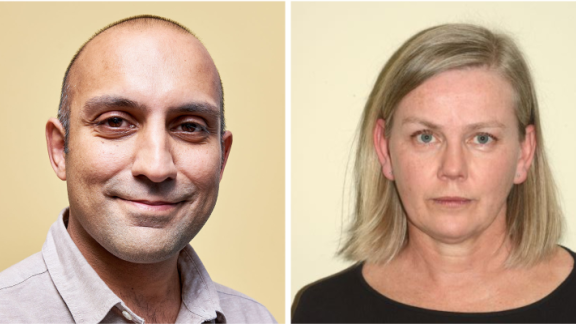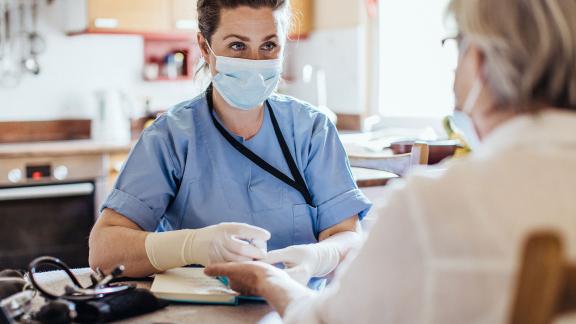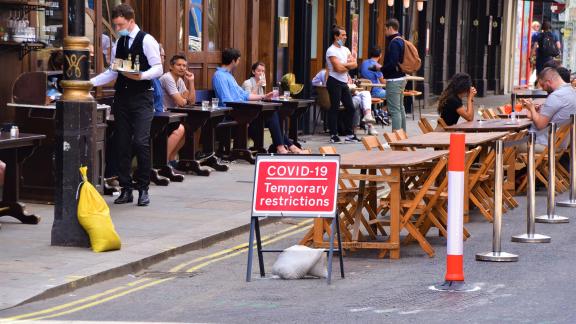Primary care crisis communications: the Leeds approach

Since the start of COVID-19, NHS Leeds CCG has been successful in finding new ways of communicating with primary care colleagues, from setting up a primary care silver command group, formalising regular briefings, to running a webinar in response to emerging issue affecting BME workforce and communities. Here Shak Rafiq and Dr Ali Best share their strategy.
We wanted to share our approach to communicating and working with primary care colleagues in Leeds as part of our COVID-19 response. Little did we know that when the first COVID-19 case was reported at the end of January 2020 what was to come next – not only how quickly we’d be moving to new ways of working, but also new ways of communicating with primary care and involving those colleagues proactively in patient-facing communications.
In summary here’s what we’ve done:
- set up a primary care silver command group
- formalised communications with a daily 3pm briefing (subsequently reduced in frequency as workforce pressures increased), backed up by a dedicated web resource
- developed communication resources to support practices share key messages with patients
- run a weekly live videoconference (subsequently stopped as workforce pressures increased)
- developed clinical resources and implementation guides working with system partners
- Worked with primary care professionals to participate in media activity and co-produce communication resources
- ran a webinar in response to emerging issues affecting BME workforce and communities
- evaluated and refined our strategy.
Initially there was a very ad hoc approach to sending updates to primary care. However, it quickly became apparent that NHS Leeds CCG and the Leeds GP Confederation needed to formalise arrangements. This was in response to growing concern, evidenced through social media listening, that colleagues believed they were not getting information from national or local sources in a timely or consistent way.
Working closely with our local medical committee (LMC), we, through the CCG chief executive, issued a social media message to colleagues in primary care announcing a daily 3pm primary care briefing that anyone could sign up to. One day later, we already had over 100 new contacts to add to the distribution list. Since then, we’ve now got a distribution list of circa 550 primary care professionals across Leeds. While it was successful, we had to reduce frequency the briefings due to the significant increase in pressures.
Setting up a briefing was just the start. We then moved to establish a dedicated online presence to host information and resources that can be quickly accessed through our internal bulletin or from the home page of our website. This isn’t just hosting information for the professional audience, we’ve also developed a range of communication resources for practices to use to help their patients including videos and translated information.
Integrated working
Integration is the name of the game as part of the NHS Long Term Plan, like all health and care systems we rapidly introduced new ways of working and supported the system-wide response to COVID-19. As many commentators have said, the NHS has done in weeks what would previously have taken years.
We established a silver command for primary care with membership drawn from CCG managers and clinicians, colleagues from Leeds GP Confederation, GP from Leeds Community Healthcare NHS Trust, a PCN clinical director and practice manager representatives. This group provides operational direction, clinical input to decision making for COVID-19 response and NHS resets, and provides strategic communications support.
This integrated approach has seen the CCG and Leeds GP Confederation work with system partners to develop a series of implementation guides from setting up multidisciplinary teams in care homes through to a standard operating procedure for hot sites. Again, all this has been communicated through the briefing and hosted on the website.
Not finished yet
So that must surely be job done now? No, that’s not the Leeds’ approach; there’s lots more. We also ran a series of weekly live videoconferences on Wednesdays between 1 and 2pm) covering key themes such as health inequalities and emerging BME workforce issues.
We’re really pleased with how GPs and other primary care colleagues have proactively supported our patient communication. From video advice on changing access to primary care, to selfie-style films to remind people that the NHS is here for you and taking part in media interviews. These links are only a few examples and we want to extend thanks to all our colleagues for their support.
We also wanted to acknowledge how the Time for Care Programme and GPIL has helped colleagues prepare for media interviews, do podcasts and take an approach of continuous improvement to all that we do.
The results
What’s been the upshot of all this? The communications strategy has been seen as a key enabler in further developing relationships and creating clear, consistent and transparent communications. Positive feedback has been received on a regular basis from individual professionals as well as the LMC, and noted by the clinical leads on the CCG’s governing body.
Seven of the ten most visited pages on the CCG website are those within the primary care COVID-19 pages. The over ordering of medicines messages saw a reduction in stockpiling and the NHS Is Here For You campaign has seen a steady increase in footfall to health services. We’ve also been asked to share our public facing resources with colleagues across the country.
If you’d like to know more please get in touch Leedsccg.comms@nhs.net
Shak Rafiq is communications manager and Dr Ali Best is associate medical director at NHS Leeds Clinical Commissioning Group. Follow the CCG on Twitter @nhsleeds



